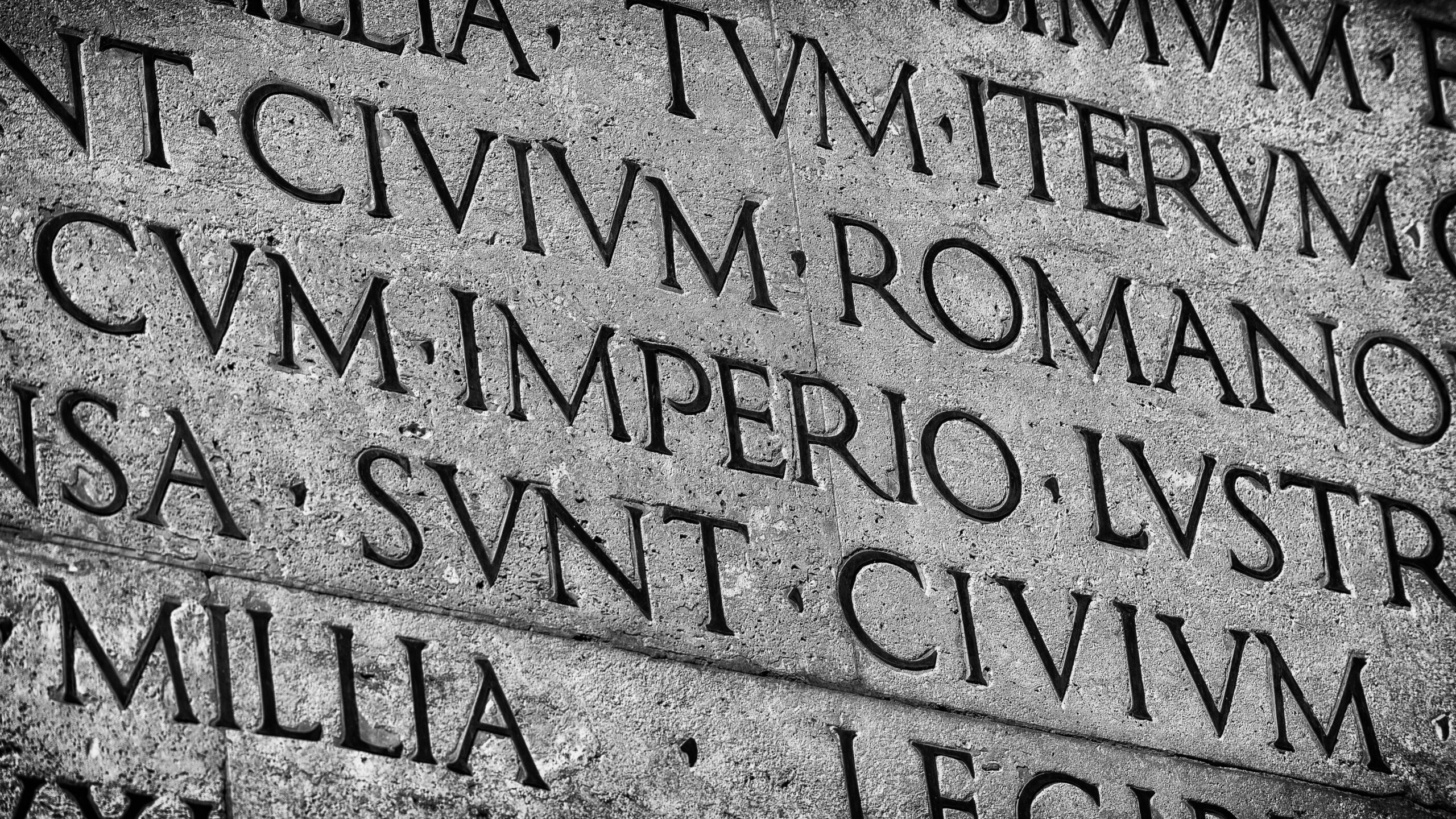As people explored around the world, languages evolved by mixing with each other. Native speakers of one language picked words from native speakers of another language. They’re called loanwords. And English is the perfect example of that.
English is a Germanic language, but it has a lot of Latin influence, especially in its vocabulary. This can only work to your advantage to learn a Romance language, since those languages come directly from Latin.
So, go ahead and learn a language derived from Latin, like French, Spanish or Portuguese. Don’t be afraid of the difficulty. Your English knowledge already helps you a lot because you’ll find out that some words are similar.
Same goes if you are already a native speaker of a Romance language. Be brave and learn English, you will find some of its vocabulary quite familiar due to your Latin background.
English Words with a Latin Influence
1. Agenda
In Latin this is agendum and its plural is agenda, and it’s used to talk about the things that have to be done.
2. Agriculture
In Latin it is written agricultūra, with its plural being agricultūrae. The meaning is the same as in English: the activity of cultivating and farming.
3. Inevitable
From Latin inēvītābilis; the plural is inēvītābilēs. The meaning is something that can’t be avoided. In Spanish and Catalan is also known as inevitable. And in French you just have to add an accent in the ‘e’: inévitable. As you can see many languages share this word in similar ways.
4. Perfect
In Latin masculine singular it is perfectus, and in masculine plural perfectī. In Latin feminine singular is perfecta, and in plural perfectae. In Romanian it is also said perfect.
5. Vice versa
In Latin vice versā. It means the same in English and Latin: places that can be reversed. Vice versa is a common phrase also used in Polish, French, Dutch, Portuguese, and Swedish. In Spanish, both words go together: viceversa.
6. Animal
From the Latin animal. It means the same as the English word, and other languages, such as Spanish, Catalan, Portuguese, and Romanian, use the same term.
7. Intro and Introduction
From Latin intrō, which means entering or going into. In English an intro is the video sequence that goes at the beginning of a movie or tv show. It introduces the series. Introduction comes from Latin intrōductiō, which as you can see is formed with the word intrō.
8. Interior
In Latin it is interior as well, and it means “inner” and “interior”. Languages like Spanish, Catalan, Portuguese, and Romanian also have this word in their vocabulary.
9. Plus
From Latin plūs, which was first plous in old Latin. It also means something like “more” or “additionally”. This word is written the same way in many other languages: French, Spanish, Swedish and Polish.
10. Versus
It comes from the Latin versus. In Latin it means “turned”, “toward” or “facing”. Spanish, French, and Portuguese also use this word.
11. Etcetera
In Latin it is et cētera, abbreviated “etc.” And it has the same meaning as in English: “and so forth”.
12. Calendar
In Latin it is calendārium, and it means “account book” or “ledger”. In Romanian it’s also called “calendar”.
13. Umbrella
This one comes from the Italian ombrella, which is a Romance language. And ombrella comes from the Latin umbella, which also comes from Latin umbra (shadow) and la. It is also said umbrella in the Latin language. It means the same in English and Latin, it’s a parasol. It’s also said umbrella in Maltese language.
14. Mile
In Latin it is mīlle, in plural mīlia or mīllia. It means “a thousand”.
15. Maximum
From the Latin maximum. It has the same meaning as in English: the greatest, biggest, largest or highest. It is also used in French.
16. Minimum
From the Latin minimum. It means “the least” or “smallest”.
17. Muscle
In Latin it is mūsculus, which in its turn comes from mūs (mouse) and the suffix –culus, used for diminutives. Mūsculus means “little mouse” and “muscle”. This is because people believed that the muscles look like little mice.
18. Major
From the Latin maior. It can mean magnus, which is big or great. It can also mean “ancestors” or “mayor”. In English it’s used to refer to the college degree, a high level military authority, or to say that something is important.
19. Picture
From Latin pictūra. It means “painting” or “picture”.
20. Video
From the Latin verb vidēre, whose present indicative conjugation is videō. It means to “see” or “look”. In English it’s used to refer to a visual recording.
Keep Learning!
If you want to know more Latin words, you can check the Latdict dictionary, for Latin to English and English to Latin words.
Knowing the etymology of the most common words in your language can help you understand other languages too, like you just saw with the words above. Now you know some words from different Romance languages because you’ve understood where the English vocabulary comes from.
And though that doesn’t make you an expert of the other languages, it’s a good beginning. If you want to dig deeper and be more fluent, you can take TruFluency language classes.
We have different languages for you to learn, including English and some Latin derived languages. Plus, all of our classes are online and personalized, so you can study from anywhere and achieve your language goals.
You’ll get to practice your new English words with Latin roots with our native teachers, who will help you acquire more vocabulary. Oh, and they will also make you practice your speaking skills because our main focus is on helping you become fluent.
So why don’t you choose a language and a teacher, and add some TruFluency classes to your agenda. You can even test the waters with a 2 hour trial class for only $49!





